Movers and shakers in a city centre
Written by


“There is no such thing as an empty space or an empty time. There is always something to see, something to hear. In fact, try as we may to make a silence, we cannot.” - John Cage
A unique energy
There is a unique energy when you stand in a public space. It crackles with the potential to tell stories, to share moments, to unite a community. By creating accessible, comfortable spaces that have a people-centric focus, the communal heart is bolstered.
Tucked away in Auckland Central is the Ellen Melville Centre, a space that has been carefully refurbished to tick all of the above boxes and as a result is very rarely empty. Figuratively and literally, it is bursting with vitality. From drop-ins to events to exhibitions, the Ellen Melville Centre weaves together the myriad of stories that make up Tamaki Makau Rau. Not only does this honour the Centre’s namesake, who was dedicated to social advancement and innovation, it paints a hyperbolic picture of Auckland and those who call it home in 2019.
Movers and Shakers
Curious to get a better sense of how they do it, I sat down with the movers and shakers hosting these happenings to chat about the work they do within the space. Like attracts like and from their weekly cooking classes to Oscar-qualifying festivals, the space attracts programmes and events that champion social impact on a local and global scale.
Ellen Melville made a name for herself as a trailblazer. After being the second woman in New Zealand to be admitted to the bar before setting up her own legal practice, her attention shifted to what was to become her life’s work; the advancement of women. She achieved this by resurrecting the National Council for New Zealand women, becoming its first president and the president of its Auckland branch nine times. This was on top of her success in becoming the first woman in New Zealand to be elected to a city council in 1913, holding her seat on the Auckland Council until 1946.
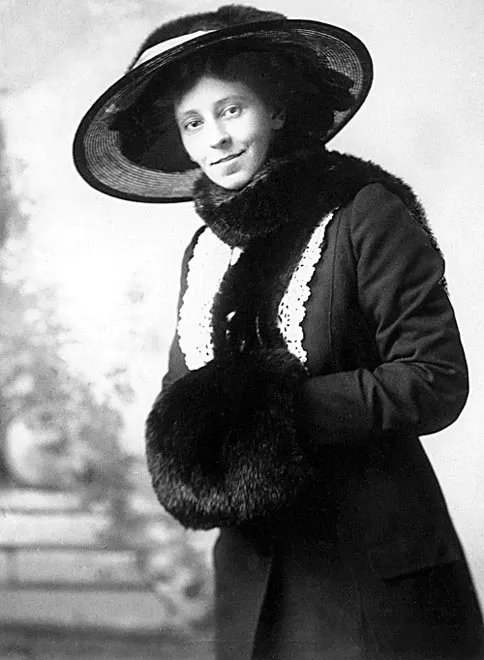
Eliza Ellen Melville, - Te Ara
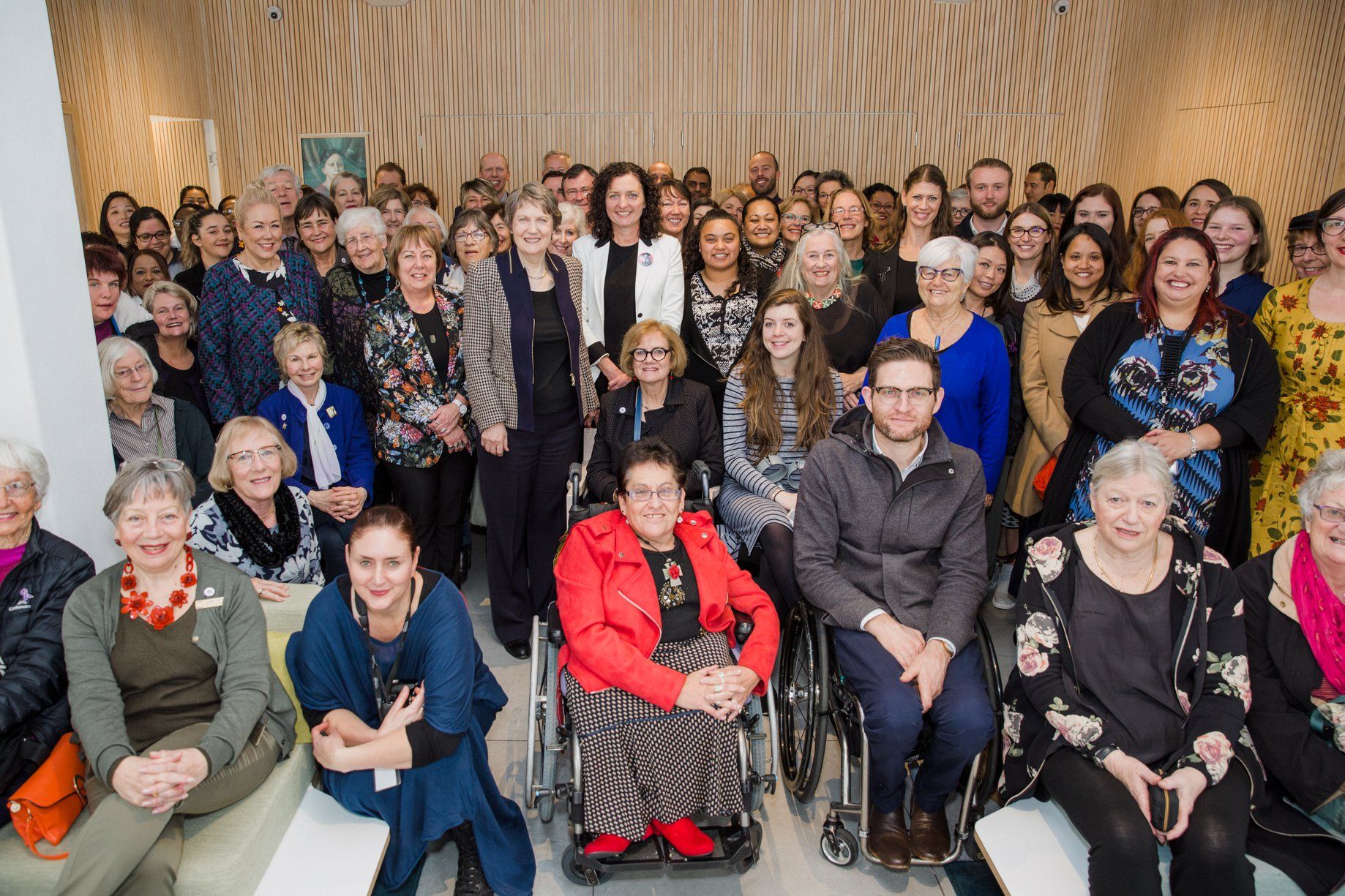
An event with National Council of Women for the naming of the Helen Clark Room -supplied
So, she would undoubtedly be very pleased that ‘her’ centre - whose rooms bear the names of local feminist icons- hosts regular workshops for young feminists. For Auckland Women’s Centre Youth Co-ordinator Gabriella Brayne, Ellen Melville’s own history was an important factor when deciding where to host their events. “Intersectional feminism is at the heart of what we do.” she explains. “It’s amazing being able to host our events in a space that actively celebrates women pioneers, such as Ellen Melville and Whāea Betty Wark. The team at the Centre embody this feminist history into the current and have been incredibly supportive of our mahi with young women and high school feminists.” She cites the Centre’s proximity to the Britomart Train Station as another key factor for it being the venue of choice to host their events. “It’s relatively easy for students from all over Auckland to attend events and it’s a beautiful, modern space.”
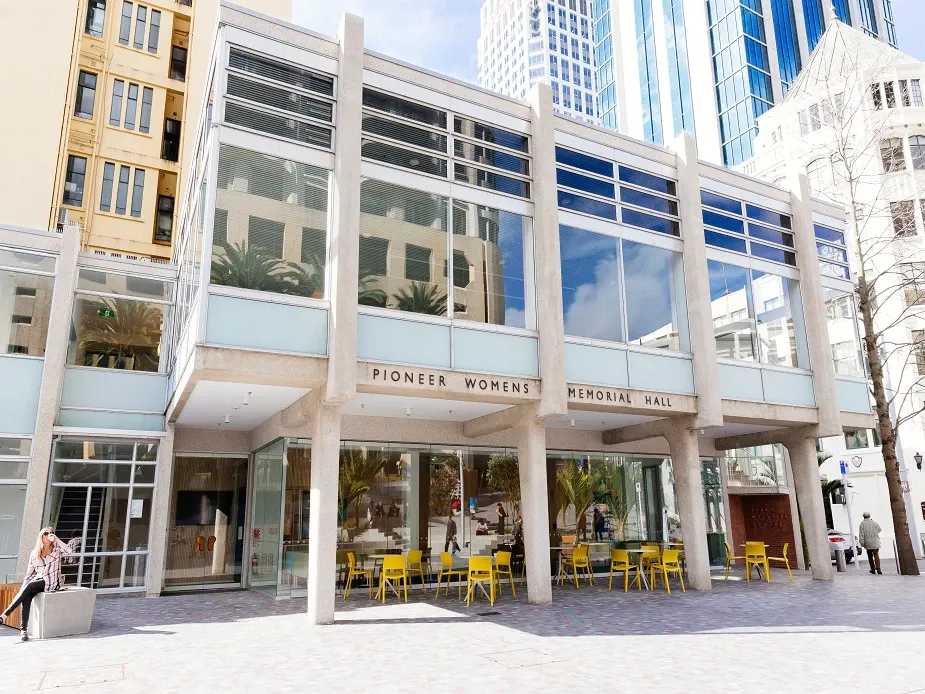
Ellen Melville Centre - Auckland Council
Feminism alive in the city centre
Along with several smaller scale events, the centre recently hosted the Auckland Women’s Centre workshop on feminist campaigning and activism for high school students, with Lizzie Marvelly from Villainesse and Ollin Perez-Raynaud from the Consent Club as guest speakers.
As a result, Gabriella worked closely with the centre manager Leesa Tilley. “Every time I've visited the centre to finalise event details it has evolved into an enriched conversation with [Leesa] about feminism, politics, and community” recalls Gabriella fondly. “The team were so supportive and efficient to work with...that’s the main reason we use the Ellen Melville Centre”.
The event itself was a great success; ”student leaders from all over all Auckland came along to engage in insightful discourse about a number of gender issues in Aotearoa” enthuses Gabriella. “The students are really keen to initiate a collaborative campaign around Abortion law reform and accessibility; we will likely be using the centre to facilitate further hui around this.” When you visit this place and see the plaques dedicated to Marilyn Waring, Helen Clark, Eleitino (Paddy) Walker and Elizabeth Yates, its inspiring you can feel the gravitas and the impact these women made on Aotearoa
From gay tea dances to exhibitions
Julia Durkin, Public Participation Director for the Auckland Festival of Photography remembers going to “gay tea dances [at the Ellen Melville Centre] in the 1990s when it was still the ‘Pioneer Women’s Hall - so it’s wonderful to see what the public investment in it has created.” Julia has been professionally involved with the venue since 2018, where it housed Talking Culture events, projections and exhibitions as part of the Auckland Festival of Photography.
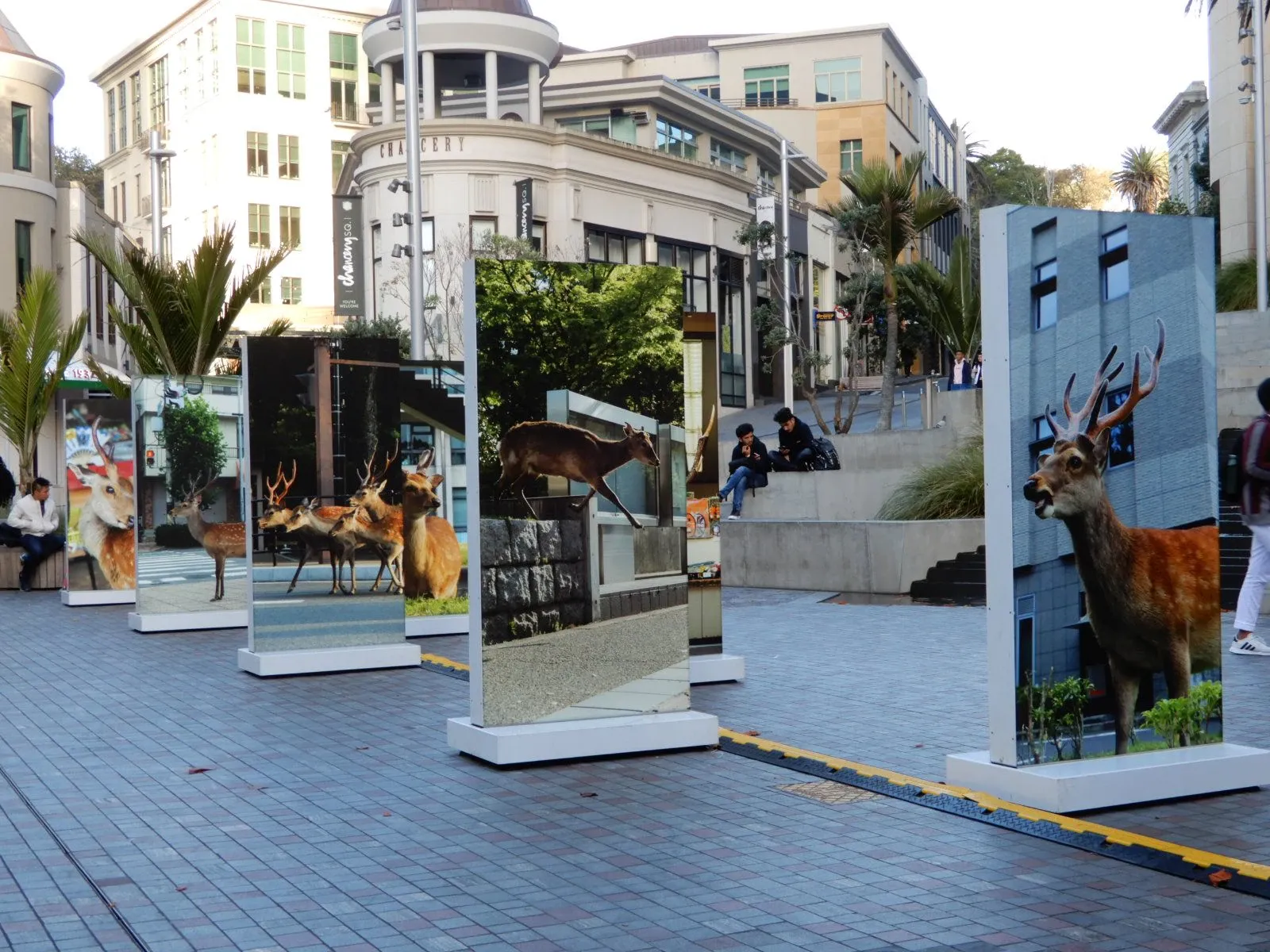
Deer Planet by Yoko Ishii for Auckland Festival of Photography
“The Festival strives to strengthen our sense of Auckland identity” Julia explains. “It aims to present photographic images that reflect the rich cultural landscape of New Zealand's largest city and inspire with top internationally relevant work. [By] telling the stories of communities and their people, it helps to establish and build identities.” As a whole, the Auckland Photography Festival is spread across 72 venues, with exhibitions and events that are all locally situated. “For us the Ellen Melville Centre is a real gem in the CBD” says Julia.
An icon, a gem and now a home for film
“It’s always nice to go into an iconic building” observes Alex Lee, Director from Doc Edge, an Oscar-qualifying documentary film festival. “[Auckland] is a city that has bowled over a lot of buildings and the Ellen Melville Centre is great because it’s an iconic building that has been refurbished to the highest standard.”
The configuration of the Ellen Melville Centre - with its street level spaces and rooms up the top - made it perfect for both industry events and exhibitions
Recently, the centre hosted the Doc Edge Film Forum and exhibition for the first time. Other events were held at the Auckland Art Gallery and Q Theatre. “We were keen to link together iconic local venues; it’s a great way to centre people, particularly if they are coming from out of town” Dan Shanan, Executive Director, explains further. “The configuration of the Ellen Melville Centre - with its street-level spaces and rooms up the top - made it perfect for both industry events and exhibitions.” Watching members of the public interact with the documentaries over their lunch break was a highlight for both Dan and Alex. “That comes down to the fact that the Ellen Melville team genuinely believes in community building,” says Dan. “We hope to call this space our home for the next few years; we’re looking forward to working with them more.”
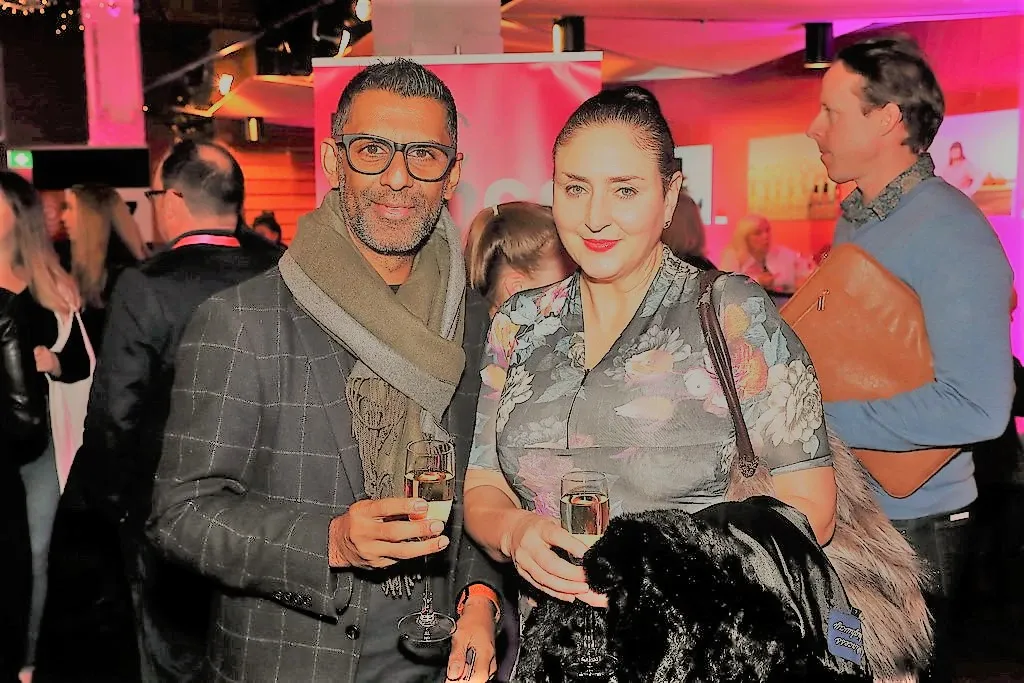
L-R: Ateesh Patel (programme co-ordinator), Leesa Tilley (Place Manager), Closing of Doc Edge Film Festival -supplied
Breaking bread
We’ve had up to 13 different nationalities sitting around the table at any one time
One of the simplest ways to build a sense of community is to get people working together in a kitchen and breaking bread together. It’s something that Jessica Niemack from Gene Now Financial Literacy Trust knows a lot about. Every Thursday, her and her trust’s team host free cooking classes aiming to teach people how to prepare budget-friendly, nutritious meals and they make community lunches in partnership with Love Food Hate Waste. “We’ve had up to 13 different nationalities sitting around the table at any one time,” Jessica says. “We were looking for a safe space to run our programme and the Ellen Melville Centre offered us their kitchen.” Once ensconced, they quickly became impressed with the energy from the team. “It’s a purposeful space for the community to connect; [the team] really bring the community together” enthuses Jessica.
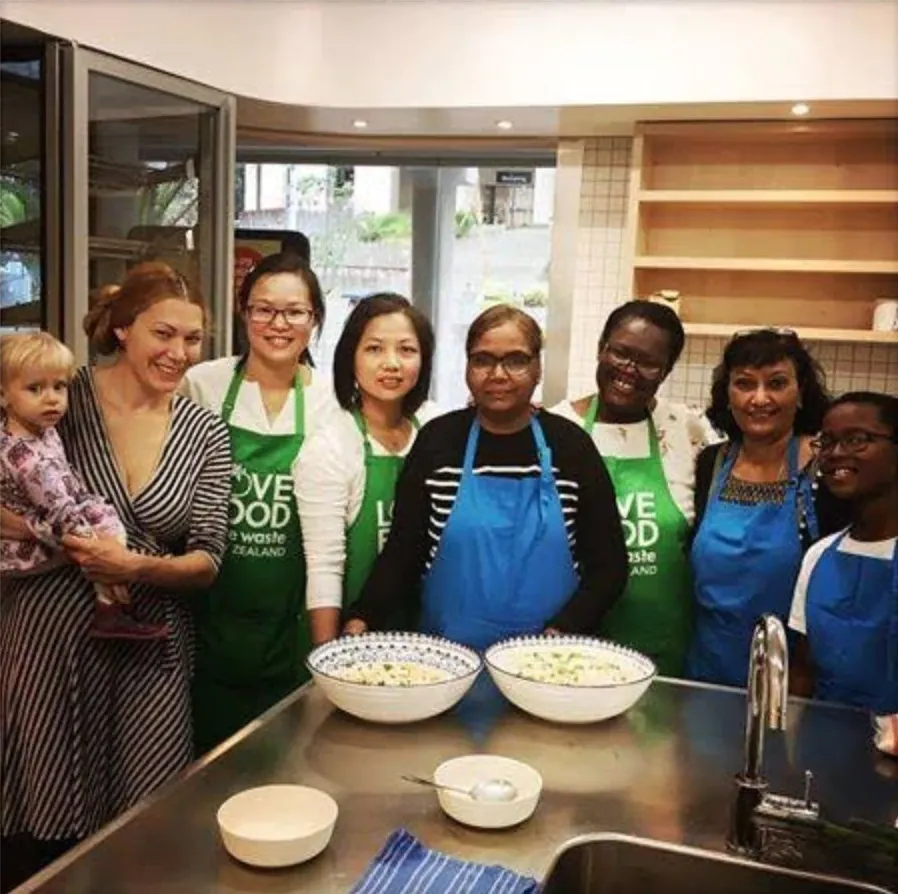
Love Food Hate Waste - supplied
Matariki
For Matariki there are a host of events both in and around the centre. Leo Koziol is the director Wairoa Maori Film Festival, which returns to the Ellen Melville Centre for its second year. The. Ngā Kete E Toru Showcase is a three-day programme of Māori, Pasifika and global indigenous film and a centrepiece of the film festival, which has events taking place across Auckland. “There aren’t that many Māori events in the CBD - they’re mostly out South or West, so we’re really excited to be celebrating Matariki in such a central space.” Earmarked as the centrepiece of the festival, events are running between 28-30 June with most of the events being free. “Traditionally Matariki is a time to hunker round the fire and tell and celebrate our stories; all we are doing is using a newer medium,” Leo says. “We’re also so excited about all of the things happening in and around this stunning central venue- people can pop into the market, go and see a film and see the amazing exhibition out the front - there’s lots on offer.”
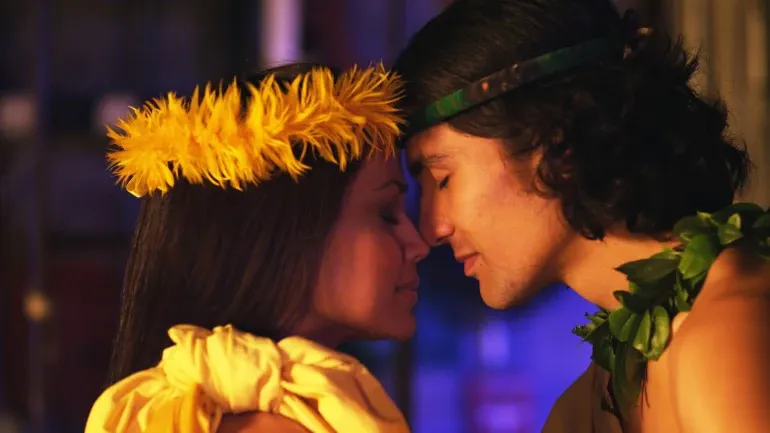
Still from The Haumana via Wairoa Maori Film Festival
Busting Moves
For Olivia Haddon, the woman behind Busting Moves, the fact that the Centre is home to some spectacular Māori art and surrounded by excellent Māori design in Freyberg Place was a real drawcard when finding a space to host her exhibition. “Upstairs in the Pioneer Women's Hall is the most beautiful tukutuku panel gifted to the city by Amiria and Eruera Stirling in the 1960s, woven by Ngāti Porou weavers and restored for the recent opening by Ngāti Whatua weavers.” she enthuses. “Outside in Freyberg Place is a design heavily influenced by mana whenua values - in particular the cascading water feature with integrated patterns by Grahame Tipene etched into the water concourses, and of course the public art on the O’Connell Street side of Ellen Melville titled Justice by Lisa Reihana”
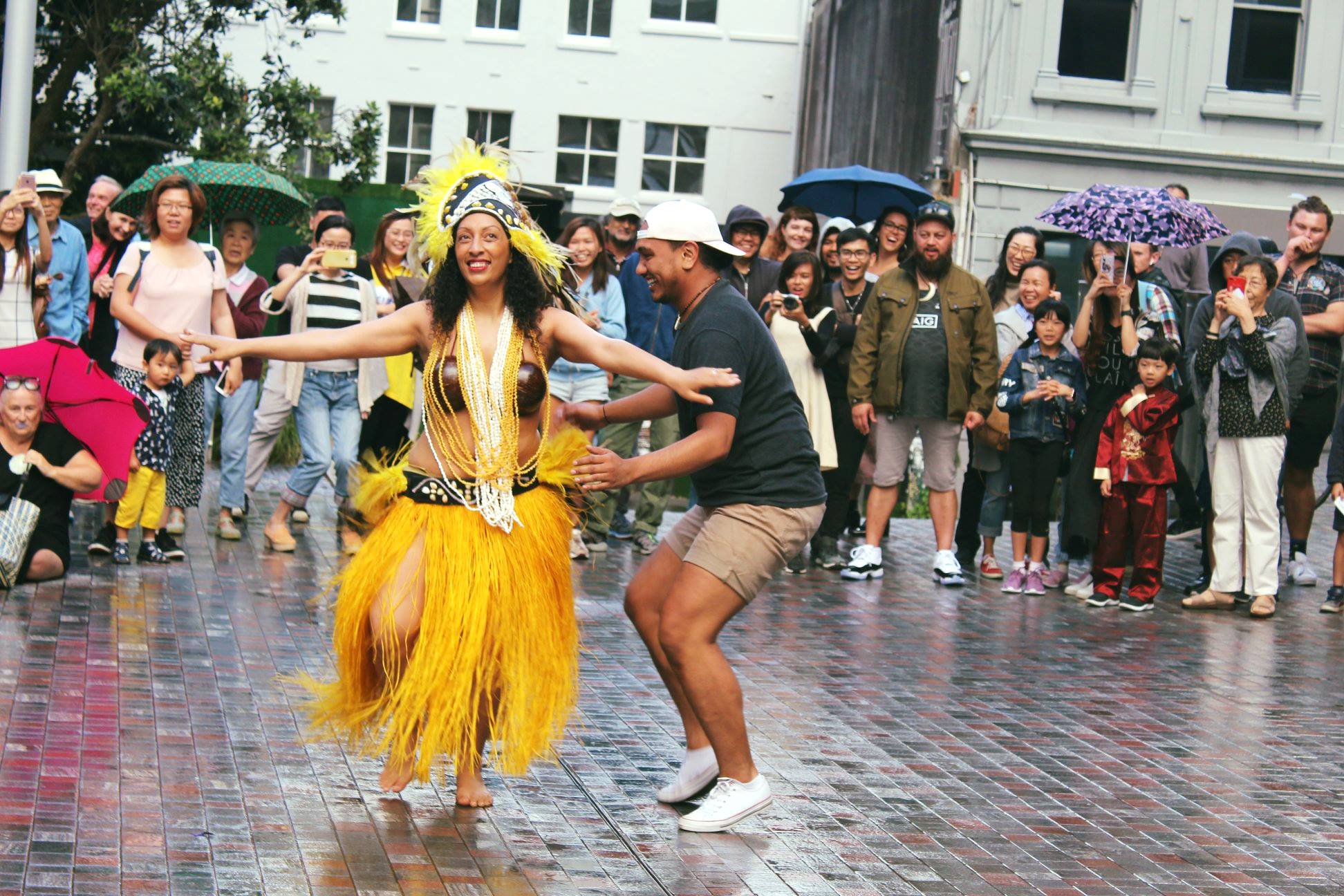
Late Night event
She encourages people to “take time to observe the panels of Busting Moves and look for the Māori design “They combine the traditional and contemporary, high art and low art, and they’re an example of where we’ve come from and where we are going.”
Much like the Ellen Melville Centre itself.
You can arrange a booking at the Ellen Melville Centre via this link and follow their Facebook page to stay updated!